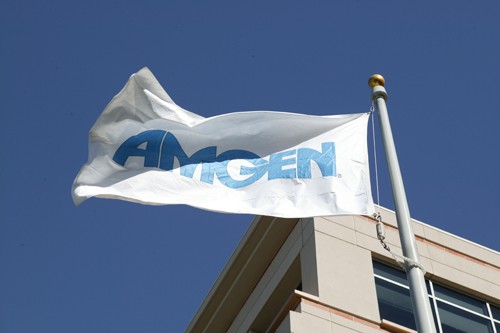
Amgen’s investigational cancer drug Talimogene Laherparepvec has improved response rates in patients with advanced and difficult-to-treat melanoma.
This is according to the phase III OPTiM study published this week in the Journal of Clinical Oncology (JCO).
The data showed a significantly higher durable response rate (DRR) in patients with unresected stage IIIB, IIIC or IV metastatic melanoma receiving the drug.
Talimogene Laherparepvec (or T-Vec), which works as an investigational oncolytic immunotherapy, was compared to those who received granulocyte-macrophage colony-stimulating factor (GM-CSF).
Results showed that the while the primary endpoint of DRR was met, the secondary endpoint of overall survival was not – although Amgen says that there was “a strong trend” in favour of talimogene laherparepvec.
Amgen’s medicine has a highly innovative mode of action as it uses a modified herpes virus, which is harmless to normal cells but when injected into tumours replicates and releases substances to help the patient’s own body fight the cancer.
Amgen acquired the drug as part of its takeover of BioVex in 2011, valued at up to $1bn with $425m paid upfront.
Analysts consider that the drug has modest potential in melanoma as a monotherapy as it needs to be injected directly into the tumour, but it could see sizeable take-up if it shows promise as a combination therapy with other immuno-oncology drugs, particularly PD-1 inhibitors.
Amgen is already conducting trials of T-Vec alongside Merck’s Keytruda (pembrolizumab), one of two new melanoma drugs alongside BMS’ Opdivo (nivolumab) that use the body’s immune system to fight cancer.
Sean Harper, executive VP of research and development at Amgen, said: “While there have been some important new treatment options in recent years, the incidence of melanoma has risen dramatically, and we need additional approaches for treating advanced disease.”
The FDA has already accepted an application for the drug, with a decision expected by the end of October this year.
The EMA is also looking at the drug for the treatment of adults with regionally or distantly metastatic melanoma.




